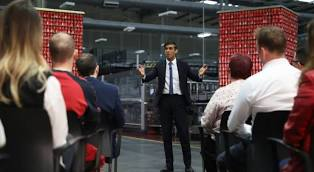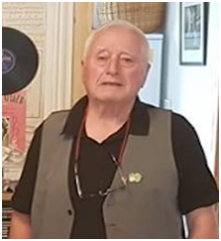As S4C enters its 40th year ‘Y Swn’ is a timely contribution to the story.
The film, ‘Y Swn’, giving an account of the
events which led up to establishing S4C has attracted a lot of attention in
recent days. It is timely as S4C celebrates its 40th year.
There had
been a campaign going on since the 1970s with the Welsh Language Society
prominent in that campaign, as was Gwynfor Evans and several of us in the Labour Party at the time.
It was
the struggles in Westminister that were the crucial ones however and in Alun
Gibbard and my book The
Forgotten Decade (pages 49-53) we gave a flavour of went on.
Here it is:
Northern
Ireland, indirectly, played into the formation of a Welsh language TV channel
for the first time in the nation’s history. There had been a campaign for many
years for better provision of television programmes in Welsh and a channel
dedicated to Welsh programmes. As the discussions to form such a channel seemed
to be heading for the rocks Gwynfor Evans threatened to go on hunger strike if
the political discussions led to a rejection of a channel for the Welsh
language, as was looking likely in September 1980, the time that he made his
threat.
Six
months later, a major hunger strike campaign was started in Northern Ireland
when IRA activist Bobby Sands led a mass hunger strike protest in the Maze
prison. Bobby Sands died after 66 days on hunger strike, and a total of nine
other IRA prisoners died as the result of the same action. Gwynfor Evans’
continuing threat to go on hunger strike then was made at a very sensitive
political time for such action.
The
discussions for a Welsh channel, in Westminster terms, went back to 1979. Both
Labour and the Conservatives had promised a Welsh language fourth channel in
their General Election manifestos of that year – a year, of course, that also
saw the devolution referendum. After that election, however, things changed.
The new Home Secretary, Willie Whitelaw, decided that there would not be a
dedicated Welsh channel after all. The existing situation of opt-outs for Welsh
programmes on BBC and HTV would continue.
This
situation was seen as highly inadequate by those who campaigned for a Welsh
channel. Welsh opt-out programmes were usually at anti-social and inconvenient
times, seen as a sign of marginalisation and disrespect. The decision to keep
that status quo sparked another period of protest. There were sit-ins in TV
studios, refusals to pay the TV licence and the attacking of TV masts.
By May 1980, Gwynfor had enough of the
political obstinacy from the Tories and promised to go on hunger strike if the
decision wasn’t reversed. At
the National Eisteddfod of that year the Eisteddfod Court asked Cledwyn Hughes,
Sir Goronwy Daniel and the Archbishop of Wales to form a deputation and to
intervene in the whole sorry saga.
Within
the Conservative party, however, there were also those who were lobbying for
the party to keep its 1979 manifesto promise: Welsh Secretary Nicholas Edwards
and, in particular, Parliamentary Under Secretary of State for Wales, Wyn
Roberts. In his autobiography Right From The Start, outlines the
discussions that had been happening within the cabinet to enforce a U-turn on
the fourth channel for Wales. These took place long before
Gwynfor’s September declaration.
Roberts,
however, conceded that Gwynfor’s hunger strike threat had taken the publicity
initiative away from the Tory government.
They have licked us hollow in the publicity battle
because they have the more newsworthy story. We can only react to it now.
In his
entry for September 20, he says that on return from a short holiday in Germany,
he sees that:
the government – that is Willie and Nick – has
completed their oval turn on the 4th channel issue and declared that the
television licence fee must be raised by a £1 to finance the project. ‘Silly
Willie’, proclaimed the Sun
newspaper – but Gwynfor can now feast rather than fast.
In
The Whitelaw Memoirs (1989), the then Home Secretary refers to
this change of mind:
Eventually, Cledwyn Hughes, whom I
regard highly, led an important delegation to see me … They persuaded me that
it would really cause much bitterness and anger in Wales if we persisted with
our plan. I thus persuaded my colleagues that we should abandon it. A Welsh
Television Channel of its own was, therefore, established offering 22 hours of
Welsh Language programmes each week.
John
Morris goes on to say in his memoirs:
it was the prospect of defeat in the Lords that
proved to be the final turn of the screw necessary to get the government to
revert to its Welsh manifesto commitment to establish the core of a national
service for the Welsh speaking minority. As far as I was concerned, and Nick
Edwards too, conscience played some part in it. We did not like breaking
promises and fought against it as hard as we dared.
The House
of Lords, he explains, was set to oppose the Broadcasting Bill, which included
the Government’s opposition to a fourth channel for Wales. He ends this chapter
that deals with this issue on a reflective note:
There was more than a tinge of sadness in the whole
business for me because the Conservative government gained minimal credit for
the establishment of the Welsh service. The hero of the hour and for many years
to come was the gladiator-cum-martyr Gwynfor, with his will and determination.
The beneficiaries were his nationalist followers, and the lesson of his example
was not lost upon them. Our Welsh language policy would have to be rebuilt
against the background of suspicion and hostility among those it was intended
to serve.
The
decade’s first year drew to a close with differing prospects for Plaid, Labour
and the Conservatives. At this point, Plaid could be regarded as the most
buoyant of the three, having secured, as they saw it, the formation of a Welsh
Language television channel. Sianel Pedwar Cymru, S4C, started on November 1,
1982, a day before English Channel 4.







